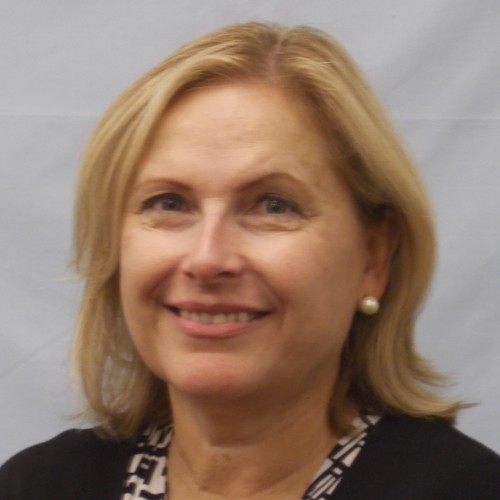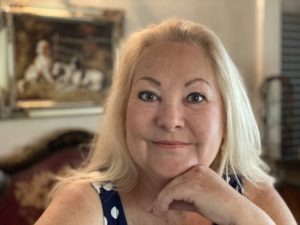One-on-one with Loren B. Shook
Loren Shook is no stranger to the LTC community. The president and CEO of Silverado Senior Living has built over the past 15 years a successful company specializing in a full continuum of memory care with its home care, assisted living and hospice service lines. Its business model—featuring expert clinical care (medical directors and RNs in addition to LPNs on site 24/7), advanced staff development and the presence of pets and children in its homes—has been studied and copied by developers across the country. In this interview with Editor-in-Chief Patricia Sheehan, Shook speaks to the opportunities and challenges for memory care providers.
WHAT SHOULD INTERESTED DEVELOPERS KNOW ABOUT MEMORY CARE?
Developers really need to understand the program they wish to provide operationally. Everything revolves around that and if you want to provide a full-scale program as Silverado does—from taking earlier-stage cases through the end of life to accommodating the most complex cases behaviorally and medically—you have to design staffing and your operational plan and budget accordingly. And that will make a difference in the physical plant you build.
In terms of changing our design model, we’ve increased the amount of common space in our new buildings with more space for people at the end of life to have more of a unique sensory location for them—[to enable] more touch, feel and smell sensations. We have a great deal of natural lighting in the communities and we’re adding larger entry/living rooms, bistro kitchens and more amenities with nicer finishes.
DISCUSS CHALLENGES FOR THOSE NEW TO MEMORY CARE
If you’re new to the business it will be challenging to get financing because lenders want operators with proven success. Financial groups have been burnt in the past betting on new operators thinking the most challenging part was the entitlement and project construction whereas they’ve learned the most challenging part is operating it. So you need a plan: know whether you want to take earlier or middle-stage cases [of dementia]. It’s a different economic/operational model.
Then you need to know when to transfer [residents] to another setting—that’s a challenge to know and convey that to your staff. The earlier and middle-stage care is filling assisted living today—especially the earlier stage but as [residents] progress to the middle stage the natural tendency is for [providers] to not want to lose the people they become attached to so there’s a built-in denial process that can happen to the best of operators. To guard against it you should have a trusted outside source who will tell you the truth relative to the cognitive functioning of the people you’re serving—an expert in the diagnostic realm like an outside physician or nurse practitioner.
HOW IS THE INDUSTRY PROGRESSING IN MEMORY CARE?
There’s an increasing knowledge out there and skill set and that’s a good thing but I don’t see anyone doing what we do at the level we do it. But I see people developing programs that are much better than what was available before. The level of programming in the markets we operate in has increased overall—the addition of nursing services, groups adding pets, a greater knowledge and understanding of what can be accomplished—although there’s a huge dearth of understanding that people with dementia can perform at the level they do in the new markets we go into.
[Consumers] think they’ve found the best in town but our level of service is so different—things like getting those to walk that couldn’t and those that couldn’t feed themselves to do so and cutting down the use of prescription meds—and they look at us like we’re lying to them. Family members get upset. They get upset because they’ve studied hard to find the best place and they thought they did and I’m telling them this isn’t the best place—that there’s a better level of service. The fact that it wasn’t available to them in their market is lost on them because the emotions and the guilt come to the surface and the irrationality of feelings is present in the anger. They don’t understand that they did the best [they could] for their [loved one].
CAN YOU ADDRESS THE REGULATORY CLIMATE CONCERNING MEMORY CARE IN AL SETTINGS?
We work diligently with our state ALFA (Assisted Living Federation of America) chapters and that’s essential. I’m the vice chair of ALFA’s board. It’s a moving picture; the recent increased focus from the government on assisted living, that HHS (Health and Human Services) included AL in its draft—they didn’t have it before in its draft and ALFA jumped in and said AL is a big player here in the Alzheimer’s world.
The focus on Capitol Hill is on Medicare/Medicaid programs and some would like to nationalize the assisted living regulatory process and make it the same as we have with CMS programs. [Regulators] don’t understand assisted living but understand skilled nursing. The beauty of assisted living is you can design a program to meet a population you’re targeting, with multiple price points accordingly. It’s a terrific benefit of this model of care. It is really important that all of us are operators are involved with our national organizations to protect our freedom to be able to innovate.
HOW DO YOU SERVE FAMILIES LOOKING FOR THE BEST CARE FOR THEIR LOVED ONES?
There’s still a stigma and it amazes me. People are afraid to admit that a family member has dementia. We’re still fighting that. There are a surprising number of people who are choosing a place closest to home with a nice appearance and deluding themselves thinking think [their loved one] can live there and convince sales people to move in but she has full blown dementia. It’s a denial process.
In this business family dynamics are incredibly intense. It’s challenging. One of our core values is to unite families in a disease that disunites them and is complicated to treat. Operators need to understand different diagnostic groups. Everyone [with dementia] doesn’t have Alzheimer’s. Hundreds of diseases cause dementia; there are multiple layers to it. It’s a very complicated disease process. Before starting down the path to get in the business, one needs to understand the complexity of the people you’re serving and then understand the importance of staff training programs.
ANY OTHER ADVICE FOR DEVELOPERS AND OPERATORS?
You really need to explain the model to all the constituents you’re working with. They need to understand what you’re doing and why you’re doing it—because what we do [at Silverado] with the pets and children and not restraining residents from moving around and carrying people through the end of life is very different from the models they see. Talk to them in advance, have them ask questions and understand what you’re doing and what success looks like. Success is a real quality of life in addition to quality of care. Also, explain what you’re doing to professional referral parties. Going into new markets we find they haven’t seen [our model] and don’t think it’s possible. We need to show them what we’ve done.
Medicine is a science and an art and what we do in delivering care is use the best of science and art. But the bottom line is we touch the human spirit in each person and the power of that is amazing.

Patricia Sheehan was Editor in Chief of I Advance Senior Care / Long Term Living from 2010-2013. She is now manager, communications at Nestlé USA.
Related Articles
Topics: Alzheimer's/Dementia , Articles , Executive Leadership , Facility management











